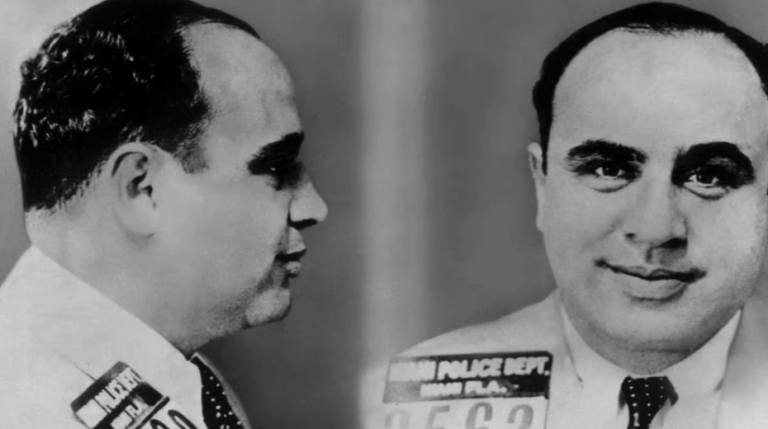Author: Shelby Benavidez
Contributing Attorney: Zirwa Sheikh, attorney
Sometimes life changes in an instant. One moment, everything feels normal – you’re sharing dinner, sending a quick text, or saying goodbye before work, and then, without warning, your world is turned upside down. A phone call comes in. There’s been an accident. A loved one you thought you’d see again in a few hours is suddenly gone.
When a person dies because of someone else’s carelessness, neglect, or intentional act, families are left searching for answers and accountability. That’s where the law provides a path forward through what’s known as a wrongful death lawsuit.
A wrongful death claim can’t bring back the person you’ve lost, but it can help bring justice, hold the responsible party accountable, and provide financial support to those left behind. This guide will help you understand what a wrongful death lawsuit is, what types of situations it covers, how to file a claim, and what you can expect along the way.
What Is Wrongful Death?
Wrongful Death Meaning
A wrongful death happens when someone’s careless, reckless, or intentional actions lead to another person’s death. In these situations, the family left behind has the legal right to seek justice through a wrongful death lawsuit against the person or company responsible. It’s important to understand that this type of case is a civil matter, not a criminal one, though both can happen at the same time if the person at fault also faces criminal charges.
While criminal cases are meant to punish wrongdoing with penalties like fines or jail time, a civil wrongful death lawsuit focuses on helping the family recover from the financial and emotional impact of their loss. Through this process, families can pursue compensation to help cover medical expenses, funeral costs, lost wages, and the deep emotional suffering that comes with losing someone far too soon.
Examples of a Wrongful Death
Wrongful death can happen in many different situations. Car and truck accidents are among the most common causes, especially when reckless, drunk, or distracted driving is involved. Medical errors are another leading cause. When a doctor fails to diagnose a serious condition, prescribes the wrong medication, or makes a mistake in surgery, the results can be fatal.
Deaths that happen on the job may also lead to a wrongful death claim, particularly if the employer didn’t provide proper safety equipment or training. Defective or dangerous products can also be to blame – anything from a faulty airbag to unsafe machinery. Sadly, some wrongful death cases even stem from nursing home neglect or intentional harm, like an assault.
Every case is different, but the common thread is this: someone’s wrongful action (or inaction) caused a death that didn’t have to happen.
Filing and Winning a Wrongful Death Case
Can You Sue for Wrongful Death?
Not everyone can file a wrongful death lawsuit. In most states, the right belongs to close family members, like the deceased person’s spouse, children, or parents. If there are no immediate family members, the personal representative of the estate may file the lawsuit on behalf of the surviving relatives.
However, before a lawsuit can be filed, a few legal conditions must be met. To have a valid case, your attorney must show that the person or company responsible had a duty of care, meaning they were expected to act safely and reasonably. Then, it must be proven that they breached that duty through carelessness, recklessness, or intentional harm. That breach must have caused the death, and finally, the surviving family must have suffered real losses as a result.
For example, a doctor has a duty to diagnose and treat patients correctly. If they miss something obvious that another doctor would have caught, and the patient dies because of it, that could form the basis of a wrongful death claim.
If the lawsuit is successful, the family can recover damages to help ease both the financial and emotional burdens that come with loss. Compensation may cover things like medical bills and funeral costs, lost wages and future income, and the loss of companionship and emotional support.
But, in truth, wrongful death suits are usually never about the money. They are about helping a family rebuild their lives after their world was flipped upside down.
Chances of Winning a Wrongful Death Lawsuit
The chances of winning a wrongful death lawsuit depend on the facts of the case, the evidence available, and the lawyer leading the case. Courts look for clear proof that the negligence or intentional misconduct of the defendant was the direct cause of the other person’s death. Evidence may include witness testimonies, medical records, accident reports, or expert opinions.
A skilled attorney can help build your case while sharing your unique story, illustrating how the loss has affected the lives of you and your family. While some wrongful death cases may need to go to trial to get fair compensation, most cases reach a settlement agreement before ever seeing the courtroom.
How to File a Wrongful Death Claim
Filing a wrongful death claim usually begins by picking up the phone and calling an attorney who will listen to your story and explain your rights. If you decide to move forward, your attorney will begin their investigation by gathering documents, interviewing witnesses, and collecting evidence to build the strongest possible case.
Next, a formal lawsuit is filed in civil court against the person, company, or organization responsible. From there, your attorney handles negotiations, mediations, and all communication with insurance companies. Many cases settle at this stage, but if the other side refuses to offer fair compensation, your attorney can take the case to trial.
Throughout the process, your lawyer will handle the legal details so you can focus on what truly matters: healing, supporting your family, and remembering your loved one.
Wrongful Death Lawsuits in Texas
Average Settlement in Texas for a Wrongful Death Suit
In Texas, wrongful death settlements vary widely because every situation is different. There’s no set amount, but compensation often ranges from hundreds of thousands to several million dollars, depending on the case.
Several factors can affect the value of a wrongful death claim. These include the age and earning potential of the person who passed away, how dependent their family was on their income, and the extent of negligence involved. For example, when a young parent who was providing for their family loses their life, the economic impact on their loved ones can be much greater. Courts and insurance companies often take that into account when determining settlement amounts.
Other factors, like the strength of the evidence, the skill of your attorney, and the insurance policy limits of the person or company at fault also play a big role. While no amount of money can truly make up for a life lost, a fair settlement can bring financial stability and a sense of justice to grieving families.
Statute of Limitations in Texas
If you’re considering filing a wrongful death claim in Texas, timing is extremely important. The law gives families two years from the date of death to file a lawsuit. If you miss that deadline, you may lose your right to seek compensation altogether.
There are a few exceptions, like if the person responsible tried to hide what happened or if the person filing is a minor, but these are rare and complex. For that reason, it’s best to contact an attorney as soon as possible after a wrongful death occurs. Acting quickly ensures that evidence is preserved and that your family’s rights are protected from the start.
Contact a Wrongful Death Attorney
Navigating life after losing someone unexpectedly is already hard enough. Trying to deal with insurance companies, legal paperwork, and court deadlines on top of that can feel overwhelming. That’s where a wrongful death attorney can help.
The right lawyer will guide you through every step of the process, explaining your options, gathering evidence, and fighting for fair compensation. When looking for an attorney, choose someone who has real experience handling wrongful death cases and a proven record of successful outcomes. Most attorneys in this field work on a contingency fee basis, which means you don’t pay anything out of pocket – they only get paid if you win your case.
A compassionate, experienced attorney can make all the difference. They can shoulder the legal burden so you can focus on honoring your loved one’s memory and beginning to move forward.
Key Takeaways: The Bottom Line on Wrongful Death Lawsuits
A wrongful death lawsuit can’t turn back time and reverse the loss, but it can bring accountability to the defendant and a sense of justice for the family. It can also help the family recover financially, so they don’t have to worry about bills, lost income, or future security while they grieve.
If you believe your loved one’s death was caused by someone else’s negligence, don’t wait to take action. Talk to a Texas wrongful death lawyer who can explain your rights and help you understand your options. There’s a limited time to file a claim, and acting quickly gives your family the strongest chance at justice.




